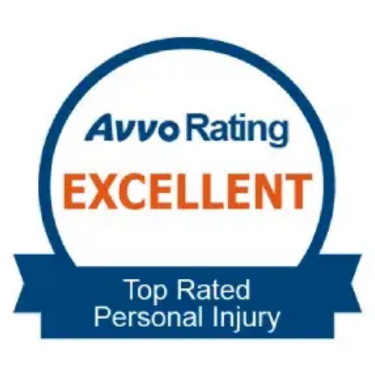Workers’ Compensation Hearings Can Be Stressful
By W. James Nicoll
 Throughout my years of practicing workers’ compensation law in the state of Maryland, I have found that many clients find testifying at a hearing before the Workers’ Compensation Commission to be a stressful ordeal. Generally, the stress of testifying begins when the injured worker receives notice from the Commission that issues have been filed by a party in the case. Filing issues means there is a dispute between the employee and the employer/insurer that requires the assistance of a Workers’ Compensation Commissioner to resolve. The stress may build as the client waits for the hearing to be scheduled. When the hearing is scheduled a written notice is sent from the Commission to all parties in the case and their lawyers reflecting the time, date, and location of the hearing site. It is not uncommon to get a call from a client shortly after he or she receives the Notice of Hearing. Very few clients are familiar with the hearing process, so when a firm date is set most clients want some explanation as to what to expect at the hearing. I find that discussing the hearing process with my clients is an effective way to reduce their anxiety. The following is some general information I like to provide my clients before they testify to help combat their fear of the unknown.
Throughout my years of practicing workers’ compensation law in the state of Maryland, I have found that many clients find testifying at a hearing before the Workers’ Compensation Commission to be a stressful ordeal. Generally, the stress of testifying begins when the injured worker receives notice from the Commission that issues have been filed by a party in the case. Filing issues means there is a dispute between the employee and the employer/insurer that requires the assistance of a Workers’ Compensation Commissioner to resolve. The stress may build as the client waits for the hearing to be scheduled. When the hearing is scheduled a written notice is sent from the Commission to all parties in the case and their lawyers reflecting the time, date, and location of the hearing site. It is not uncommon to get a call from a client shortly after he or she receives the Notice of Hearing. Very few clients are familiar with the hearing process, so when a firm date is set most clients want some explanation as to what to expect at the hearing. I find that discussing the hearing process with my clients is an effective way to reduce their anxiety. The following is some general information I like to provide my clients before they testify to help combat their fear of the unknown.
The Workers’ Compensation Commission has multiple hearing sites throughout the State. All sites are open by 8:30 a.m. I recommend that all of my clients plan on arriving at their hearing location by 8:30. Even though hearings do not begin until 9:30, arriving early allows time for me to meet with my client to go over any last minute issues. Planning to arrive early is also a good idea in case my client has transportation issues created by traffic or problems with directions. Finally, by arriving early I have time to show my clients around the hearing site including the hearing room where he or she will testify. Hearing rooms are designed similarly to courtrooms. There is the bench where the Commissioner sits, a witness stand, and counsel tables. Additionally there is an area in front of the bench where a court reporter records all of the testimony.
After meeting with my clients prior to the hearing, we sit in the hearing room with the other lawyers, injured workers, insurance company representatives, employers, and any other witnesses and wait for the Commissioner to take the bench. As noted above, Commissioners generally start the hearing proceedings at 9:30 a.m. when they call the docket. The docket is the list of cases to be heard that day. After the docket is called the hearings begin.
My clients have told me that watching a few hearings before they have to testify helps them relax. Workers’ compensation hearings are not as formal as court proceedings in that the formal rules of evidence do not apply. However, witnesses do testify under oath and are subject to cross examination by the attorney representing the opposing side. My practice with my clients is to always stress the importance being truthful, regardless of whether they feel their response to a particular question may harm their case. Being honest goes a long way in workers’ compensation hearings, as Commissioners certainly consider a witness’s credibility in their decision making. Regarding decision, Commissioners do not issue them from the bench. All hearing orders must be issued in writing meaning the parties have to wait a few days or weeks to find out the outcome of their hearing. If a party is not happy with the decision, the Commissioner’s order can be appealed to the Circuit Court.
If you have questions concerning your workers’ compensation case, please feel free to contact the workers’ compensation lawyers at Jenkins, Block and Associates. Our attorneys can be reached at 1-800-243-7122. Phone calls are free, and there is no attorneys’ fee unless we help you recover compensation.
Please feel free to visit our homepage or contact our experienced attorneys to discuss your case.
Learn more about Jenkins, Block and Associates and stay up-to-date with our latest news on our Facebook, Twitter, LinkedIn, and Google+ pages.


